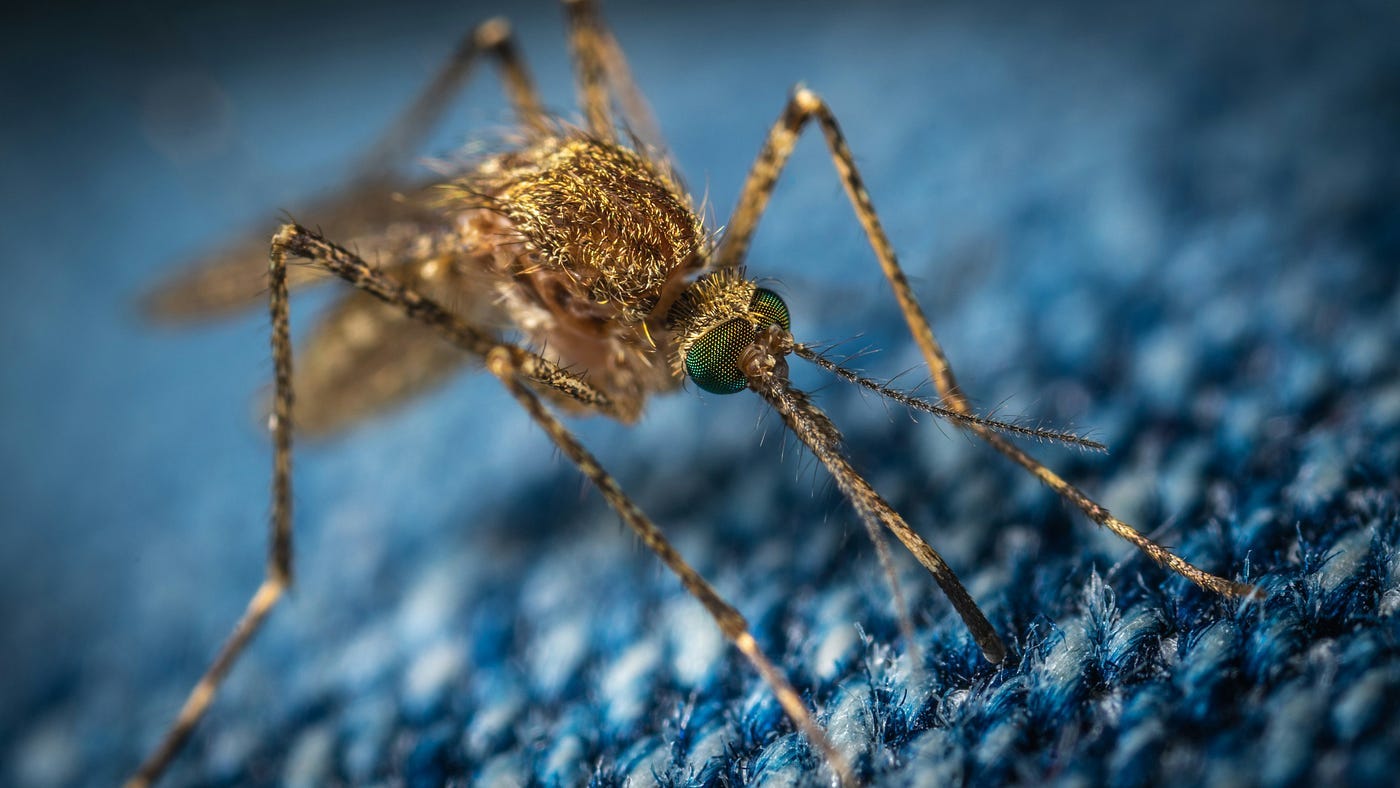There’s one creature in the world that kills around a million humans each year.
It is pretty easy to recognize, and it lives anywhere in the world, and you probably spot it many, many times in your life. Actually, as you read this article, it could be there with you right now. Watching and smelling you through the darkness.
I will give you some hints:
It is born in water but lives on the ground (and air).
They can become an adult in just 7-10 days.
It is as small as a grain of rice.
They can be really annoying at night (and during the day too).
Can you guess who is this tiny but deadly creature?
And the Deadliest Animal Is …
The mosquito.
Yes, you read that right: the mosquito.
“Wait a second, insects are not animals!”
Actually, they are. Animals are broadly divided into vertebrates (like mammals, birds, and reptiles) and invertebrates (insects, mollusks, and arthropods). So, mosquitoes fall under the invertebrate group and are part of the animal kingdom.
And they are the champs of killing humans each year, but why?

What makes this insect so deadly is the transmission of diseases.
For example, they transmit malaria, dengue, yellow fever, zika virus, etc.
The numbers of cases and deaths are worrying. Look at these official numbers from the World Health Organization and Argentina:
According to the latest World Malaria report, there were 263 million malaria cases in 2023 in 83 countries. The estimated number of deaths was 597,000. The African Region was home to 94% of those cases and 95% of malaria deaths. Sadly, children under 5 accounted for about 76% of all the malaria deaths in the region.
Recently, in Argentina, there were more than 300 thousand Dengue cases and almost 300 deaths, the highest numbers in decades (Argentina Health Ministry, 2024).
What’s Worse, Climate Change Is Making Mosquitoes Stronger Than Ever
A study published in Cell, reviewed the Ecology, Traits, Behavior, and Disease Transmission of mosquitoes.
Mosquitoes can reproduce and grow faster in warm environments.
For example, temperature is the most observed variation in the development rates of mosquito larvae. Also, humidity and precipitation influence mosquito survival and abundance, with high humidity favoring adult mosquitoes and excessive precipitation limiting larval survival (Chandrasegaran, 2020).
For these reasons, climate change is predicted to increase the burden of mosquito-borne diseases, with modeling studies showing the potential effects on disease transmission in different scenarios and scales.
However, more studies are needed to predict an approximate number of cases, deaths, and more.
It’s insane how a little creature can kill so many humans.
These numbers also show us the cruel reality of the high disparity in our world. Plus, climate change is quickly affecting environments, making it ideal for mosquitoes to grow and reproduce.
Crucially, governments can also be part of this problem.
Take our home country, Argentina, as an example. Our current president decided to reduce the budget for science in general, including tracking and developing new vaccines or medicine for Dengue.
Not only did he reduce or almost eradicate this public budget.
He did not apply public campaigns to raise awareness about Dengue.
The results? Thousands of infections and hundreds of deaths.
Animals are incredible.
They continually amaze us with their unique colors, behaviors, and the complex ecosystems they inhabit.
In Cognitive Creatures, you will discover their secrets and learn why they are crucial for our planet.
“With a greater sense of understanding comes a greater sense of wonder”. — Anil Seth.
Until the next time,
Axel and Victoria.
📚 References
Chandrasegaran, K., Lahondère, C., Escobar, L. E., & Vinauger, C. (2020). Linking mosquito ecology, traits, behavior, and disease transmission. Trends in parasitology, 36(4), 393-403. doi: 10.1016/j.pt.2020.02.001
Gobierno de Argentina. (2024). Dengue: Actualización de la situación epidemiológica semanal. Retrieved January 11, 2025, from https://www.argentina.gob.ar/noticias/dengue-actualizacion-de-la-situacion-epidemiologica-semanal.
World Health Organization. (2024). Malaria. Retrieved January 11, 2025, from https://www.who.int/news-room/fact-sheets/detail/malaria#:~:text=According%20to%20the%20latest%20World,to%20610%20000%20in%202021.




